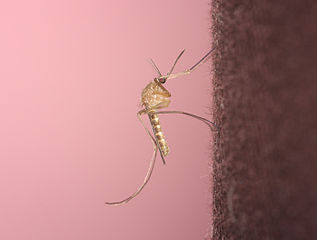The theme for my posts this quarter seems to be, “weird things that happened to Cynthia’s skin.”
This time, it’s mosquito bites.

Culex pipens (a.k.a. the bane of my existence), one of the most common mosquitoes in Santa Cruz county. Photo by David Barillet-Portal via wikimedia commons.
I’ve had allergic reactions to mosquito bites ever since I can remember. My reactions range from small red splotches that itch for days to swollen white welts that itch for a week or more. After one too many summers in the bug-infested marshlands of Ohio, I was relieved to hear that Northern California was a mosquito-free paradise.
Well, maybe Oakland, where all my college friends live, is a mosquito-free haven, but Santa Cruz most certainly is not. Here’s the list of places I’ve been bitten, from least to most ridiculous:
- Right forearm, in a cluster of 6 bites or so
- Left shoulder
- Forehead next to my hairline
- Right cheek
- Left ear (cartilage)
- UPPER LIP
I’m most upset about the time I got bit on the upper lip. I mean, really.
The oddest thing was that all these mosquito bites happened inside my apartment in the redwoods of Santa Cruz, during January and February. And yes, I’m positive it’s not bedbugs.
Where I’m from, one of the perks of winter is that there are no mosquitoes. I was extremely dismayed to find out that mosquitoes breed year-round in California. Even amidst the drought, those horrible bugs can still reproduce even in small amounts of standing water.
Now faced with the possibility that mosquitoes might be a year-round problem for me, coupled with growing concerns about tropical diseases migrating with invasive mosquito species and a warming climate, I decided to take action. (By the way, in order for things like dengue and yellow fever to come to California, it takes more than the right mosquito. It also takes the right ailing person who then must be bitten by the right mosquito and then that mosquito has to bite someone else. So don’t go hitting the panic button just yet.)
I called Paul Binding at the Mosquito Abatement and Vector Control Division of the Agricultural Commissioner of Santa Cruz County. My first question was why are these mosquitoes eating me up while my roommates, unbitten, are questioning their very existence (and by proxy, my sanity?)
“Mosquitos sense people in different ways. First they follow the carbon dioxide plume in our exhalation. Then they’ll sense your heat. And lastly they’ll choose between people based on different chemical odors. They seem to like sweat and food odor. [Great, so I guess that means I’m smelly, too.] Lastly they’ll find a spot on you where there are vessels close to the skin.”
More bad news: “The old wives tale is to use garlic or vitamin b, but those don’t seem to be proven to work,” Binding said. He said that DEET-based repellents work the best.
But, “they have the habit of burning synthetic clothing,” he said. They also smell bad.
Some essential oils can help for those of us who don’t want to bathe in DEET. Binding recommended finding “natural” bug repellents with eucalyptus or picaridin oils in their ingredients.
It’s also important to be sure not to create any mosquito breeding grounds. Particularly as the drought persists, and counties impose water rationing, people need to be particularly careful with rainwater collection. Additionally, be sure to pick up litter when you see it “Mosquitoes can breed in very small amounts of water. So even something like a coke can, anything lying around the yard, it can breed in.”
In the meantime, I’ll be spraying myself with lemon eucalyptus and hope for the best.







Comments are closed.